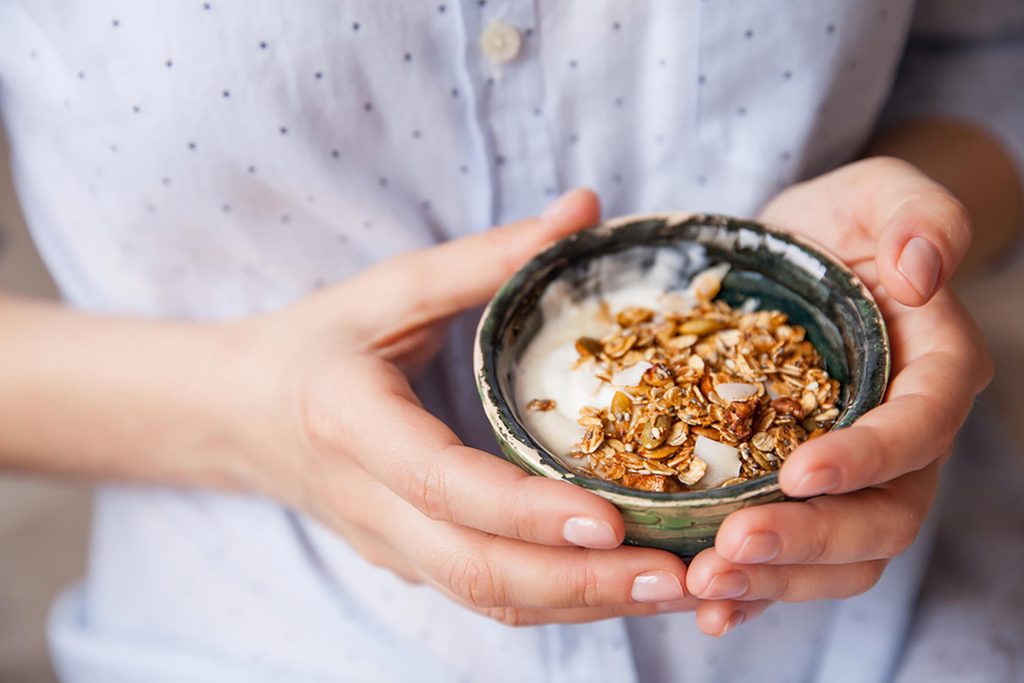Could This Go-To Breakfast Beat Depression? A New Study Says Yes!
Updated: Mar. 24, 2017
In spite of the happy leprechaun or brightly colored marshmallows on your cereal box, your mood-boosting breakfast starts in the fridge.

Grab a spoon because we’re talking about yogurt. While it’s common knowledge that yogurt has fabulous health benefits, new findings suggest that it may also help combat depression, thanks to gut-bug-boosting probiotics. A new study published on Scientific Reports has shown a direct link between the health of our gut and our mental well-being, which could pave the way for groundbreaking new treatments.
Over 40 million adults in the United States are affected by depression and anxiety disorders, impacting the economy to the tune of $42 billion each year. And now a team from the University of Virginia School of Medicine has made a breakthrough.
In a release from the University of Virginia, study author Assistant Professor Alban Gaultier emphasized the importance of this research. “It’s a huge problem and the treatments are not very good because they come with huge side effects,” he explains. “When you’re stressed, you increase your chance of being depressed, and that’s been known for a long, long time. So the question that we wanted to ask is: Does the microbiome, the community of bacteria that live in our bodies, have a role to play in depression?”
Stress is a major factor in triggering depression, so the scientists subjected mice to higher levels of stress until the animals began to show common symptoms of depression. The team then did a before and after comparison of the levels of gut bacteria in the mice, and the difference was clear: Levels of Lactobacillus (probiotic bacteria found in live yogurt), dropped considerably after the mice showed depressive symptoms. When a Lactobacillus supplement was added to their diet, the mice recovered almost completely. It was obvious, then, that Lactobacillus was a critical element in triggering depression, but the scientists wondered why. What was the specific role played by Lactobacillus? Further research revealed the answer.
Kynurenine (a metabolite) is known to affect depression—when kynurenine levels increase, so do depression symptoms. The study showed that Lactobacillus can help balance the levels of kynurenine in the blood. Without adequate levels of Lactobacillus, the body can’t regulate kynurenine properly, contributing to the rise of depression.
The team found a direct correlation between mice behavior and levels of Lactobacillus in the gut, leading them to conclude that there is a direct link between the health of the gut and depression. “A single strain of Lactobacillus is able to influence mood,” Professor Gaultier says.
Of course, mice can’t confirm if they’re actually depressed, but monitoring their symptoms is an accepted scientific method for researching depression. This research is at an early stage, and the team now plans to extend its research to humans, including in people with chronic conditions, such as multiple sclerosis, that are known to trigger depression.
Yogurt, which is naturally rich in the probiotic Lactobacillus, is a delicious addition to a healthy diet, especially when teamed with delicious toppings. As a bonus, probiotics may also offer relief from seasonal allergies. While it’s safe for most people to eat yogurt daily and even take probiotic supplements, patients with depression should consult their physician before making any changes to their medication.
